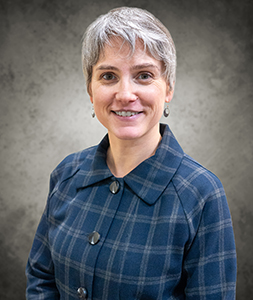Executive Director Letter

Dear partners,
This year marks the tenth edition of Puget Sound Day on the Hill, the annual event organized by the Partnership and Northwest Indian Fisheries Commission. For Puget Sound Day on the Hill, representatives from Tribes, state agencies, local governments, nonprofits, and businesses, along with concerned residents, travel to Washington, D.C., to lend their voices in support of action to save Puget Sound and uphold Tribal treaty rights.
Thanks to our congressional delegation, our federal partners, and the many advocates for Puget Sound and salmon recovery who attend Puget Sound Day on the Hill, we’ve made progress on major policy and funding goals, most recently with the passage of the PUGET SOS Act, increased funding for the National Estuary Program and Puget Sound Geographic Program, and transformative federal investment in recovery, climate change resilience, and environmental justice through the Bipartisan Infrastructure Law (BIL) and the Inflation Reduction Act (IRA).
Partners throughout the region are putting BIL and IRA funding to smart use—often finding alignment with other partners to collaborate on innovative, large-scale projects that restore habitat, reduce greenhouse gas emissions, improve quality of life for residents, and address infrastructure needs.
This issue of Making Waves highlights how partners are working together and using this funding wisely to complete big projects that benefit the whole Puget Sound ecosystem.
Our new video showcases some examples of this type of collaboration. Tribes, local governments, state agencies, and nonprofits are working together to plan and complete infrastructure improvements that contribute to Puget Sound ecosystem and salmon recovery. This relationship between the recovery and transportation sectors creates Sound Safe Infrastructure, which produces better outcomes for people, salmon, and the environment.
This issue of Making Waves includes articles about other exciting initiatives and partnerships that are driving recovery and providing multiple benefits for communities and wildlife:
- Shore Friendly is a voluntary program that helps private landowners of marine shorelines in Puget Sound reduce shoreline armoring and restore shoreline habitat around the Sound. The program aids landowners in managing their property while also restoring natural beach habitat.
- The Northwest Straits Commission, celebrating 25 years of marine conservation work, published its 2023 Impact Report. The report details the work of the Commission, its staff, the seven Marine Resources Committees, and the many volunteers who devoted more than 8,600 hours of their time to projects that support the health of the ecosystem.
- The U.S. Coast Guard’s Puget Sound Vessel Traffic Service recently launched the Cetacean Desk, a pilot program that aims to reduce the effects of marine vessel traffic on Southern Resident orcas and other species of whales. The Cetacean Desk will help monitor sightings of whales and report them, through the WhaleReport Alert System, to assist mariners.
- Salmon recovery partners throughout the state—including Tribes, local governments, and nonprofits—have seen their projects delayed or cancelled due to impacts from a change in the Federal Emergency Management Agency’s (FEMA) no-rise policy. The no-rise policy now mandates costly analyses for salmon habitat restoration projects. Partners are seeking to work with FEMA to change the policy so that it’s more flexible for restoration activities.
- The Salish Sea Nearshore Programmatic is a regulatory tool that helps proponents of on- or over-water construction projects balance out the ecological impacts of construction with equivalent ecological offsets. Project proponents can offset these impacts by purchasing conservation credits from the Partnership’s Nearshore Credits Program, which helps fund restoration throughout the region.
- The Bipartisan Infrastructure Law and the Inflation Reduction Act have provided transformative funding for Puget Sound recovery priorities. This funding has supported projects for salmon recovery, fish passage, habitat restoration, greenhouse gas reduction, environmental health improvement, mobility and safety, flood-hazard reduction, invasive species management, and more.
Each Puget Sound Day on the Hill event is a chance for partners to come together to work on challenging problems—to find shared goals, have tough conversations, and formulate bold ideas. Puget Sound Day on the Hill is also a chance for us all to take a moment to reflect: to recognize and celebrate what the recovery community has accomplished, and to be grateful for our partners’ commitment to the long-term vision of a healthy and resilient Puget Sound.
Sincerely,
Laura Bradstreet
Executive Director,
Puget Sound Partnership

